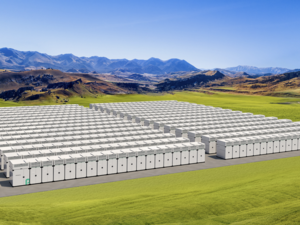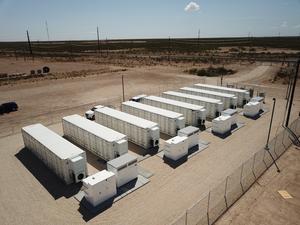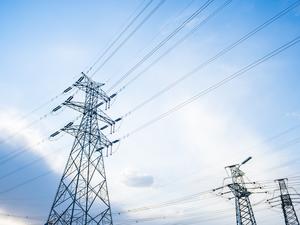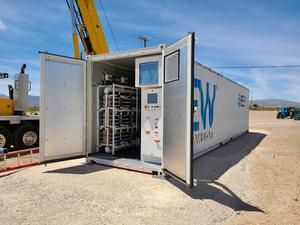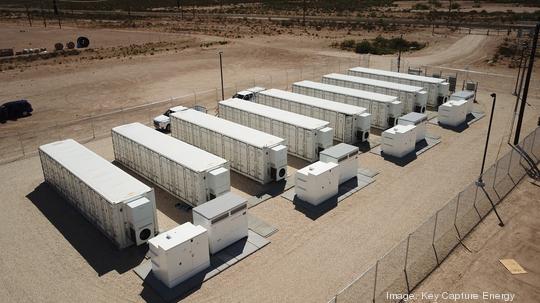
Powin pushed hard through the pandemic and plans to use the fresh $135 million investment it revealed on Thursday to keep its foot on the gas.
That might be a slightly inapt metaphor for a company whose battery energy storage systems typically go into big projects that help utilities and other grid operators bring more renewable energy online. But aggressive expansion is exactly the vision outlined by Senior Vice President Danny Lu, who said further announcements from the Tualatin-based company related to feeding growth could come soon.
“We have money-raising goals that really allow us to hit the growth targets that our company has projected,” Lu said in an interview.
The research and consulting firm Guidehouse last year put Powin in the top ranks of the grid energy storage sector, where fellow leaders include the likes of Tesla.
“We are on the same level as Tesla and above the other integrators,” Lu asserted. “That’s due to our proven competitive cost structure, best-in-class hardware and software, and availability of product.”
Still, Powin sees itself a long way from reaching its potential as the sector, while growing fast, navigates challenging supply conditions.
Building out personnel, manufacturing and supply capacity
Powin, which added an office in Portland in the past year, has 75 active projects and needs to build out the teams to manage them, Lu said.
Earlier this year, the company unveiled plans to move production from Asia — where it sources battery cells — to Mexico to better serve the North American market. Now it sees adding two or three more manufacturing facilities as it pursues growth globally, including in Australia, Southeast Asia, Europe and the Middle East.
The capital infusion will also be key to securing battery cells at a time when global demand for both electric vehicle and stationary storage use is putting supply under pressure.
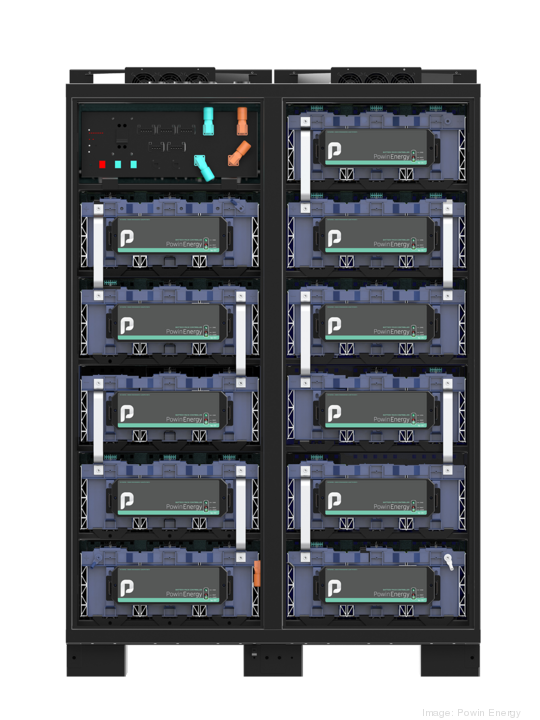
“We’ve made our name when our competition didn’t have the battery capacity to deliver,” Lu said. “Securing as much batter capacity as possible over the next few years is going to be critical, and it takes hefty deposits to do that.”
Powin has always boasted of its flexibility to plug in cells from different vendors and its ability to source at low cost, a legacy of the company’s history as a contract manufacturer in Asia. Now, in an industry where using accepted “tier 1” suppliers has been paramount, Powin has been embracing “up-and-coming” suppliers, Lu said.
“We’ve been able to leverage alternative suppliers who are hungry to sell their capacity at more competitive costs,” he said.
He emphasized the company's strict focus on the stationary energy storage market as an advantage, drawing a contrast with competitors who also have an eye on electric vehicles.
“Other companies doing electric vehicles or batteries for electric vehicles, there is always some level of internal competition,” Lu said.
Hiring focused on boosting technology
Powin has more than doubled its headcount in Oregon in the past 18 months, to about 250 people, out of more than 300 total employees. Hiring has included the usual administrative functions but a big focus has been on software.
“We want to give our customers a great user interface, deep analytics into predictive maintenance as well as battery life,” Lu said. “There’s also a lot of effort in enhancing best-in-class safety features.”
Lu called the company’s Northwest Portland outpost, in the Field Office just north of the Fremont Bridge, its “commercial hub,” housing sales and marketing, finance and the like. Tualatin, where Powin operated before it transformed into an energy storage-focused enterprise six years ago, remains the headquarters and its engineering hub, but is being transformed.
“We’re remodeling that whole office to make it into a real, modern working space to attack the growth goals that we have,” Lu said. “We’re also expanding out battery cell and system test lab” where the company can validate cell vendors, enabling the aggressive approach to securing supply, he added.
